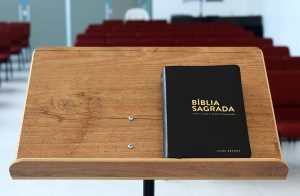The German reformer would call COVID-19 an “alien work of God.”

If we could ask Martin Luther how to make sense of the current pandemic, he would likely encourage us to view it as the “alien work of God.” The phrase appears in his earliest lectures on the Psalms and again in his lectures on Romans and Hebrews, where he develops the defining contours of his evangelical theology. It directly informs the advice he gives in his much-quoted “Whether One May Flee from a Deadly Plague” and is central to the way he interprets suffering and misfortune.
Luther believed that God is utterly sovereign over all things, including suffering of various kinds. God is even sovereign over the Devil, whose diabolical plots in the world the Wittenberg reformer took quite seriously. Luther was very honest about the reality of suffering in the world, along with the pain and despair that it causes—there is nothing Pollyannaish about his theology.
But Luther firmly believed that God is good. God’s very nature is ardent, self-giving love—this is foundational for Luther. Human beings, on the other hand, are deeply sinful and strongly prone to self-deification in all things. Even Christians have to engage in a daily, life-or-death battle with the “old Adam” (or “old Eve”), which they can only win by divine grace. Many are also prone—as he himself was prone—to see God as an angry judge who is easily provoked to wrath. Luther knew firsthand that when such souls experience suffering, they nearly .





















